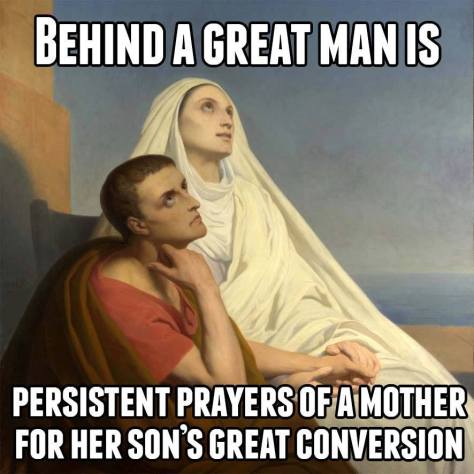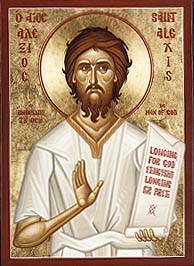
In my last entry, we looked at what the Catechism teaches about the Lord’s Day: Sunday is the most important day of the week, the celebration of the Christ’s Paschal mystery. The liturgical year is structured in such a way that throughout the Sundays and Solemnities of the year, the entire mystery of Christ is unfolded for us. Another way of exploring the Paschal mystery of Christ throughout the year is through the “Sanctoral cycle,” that is, the memorials of the lives of the Saints. The Catechism (no. 1173) teaches us:
“When the Church keeps the memorials of martyrs and other saints during the annual cycle, she proclaims the Paschal mystery in those ‘who have suffered and have been glorified with Christ. She proposes them to the faithful as examples who draw all men to the Father through Christ, and through their merits she begs for God’s favors.’”
I may have mentioned here before, and we should remember, that as Catholics, we do not “worship” or “adore” the saints. Worship is reserved for, and due to, Almighty God alone. We do, however, venerate the saints. This means that we acknowledge our respect for this particular person, and that we hold them as an example of how to live the Christian life. Saints are people that we know are in heaven. Some people, and some other Christian groups, may say that honoring a saint, or even a statue of a saint, is worshipping a false idol. This is not what we are doing. We are not making that person into a god, but we are saying that they honored God by their life, and we wish to follow their example. By contemplating an image or praying in front of a statue, we are asking for help in leading good Christian lives, just as that person lived. Pre-eminent among the saints is our Blessed Mother, Mary, a perfect example of how to answer God’s call to holiness.
When we ask a Saint for their intercession, we are asking, believing that they are in heaven, for them to be an advocate for us to Christ. In the Litany of Saints, we sing the name of a Saint followed by “pray for us.” This means “pray to God for us.” It’s like having a friend go whisper in His hear, because you know this friend is in “good-standing”, so to speak. In the Salve Regina (Hail Holy Queen), one of the many awesome titles we give to Mary is “most gracious Advocate.” There’s nothing wrong with praying to Jesus, and also asking His mother to go ask Him for help, too. After all…what happened at the Wedding at Cana?
Is there a particular saint that you ask for intercession on your behalf? Who do you wish to emulate? Who is your patron saint?



